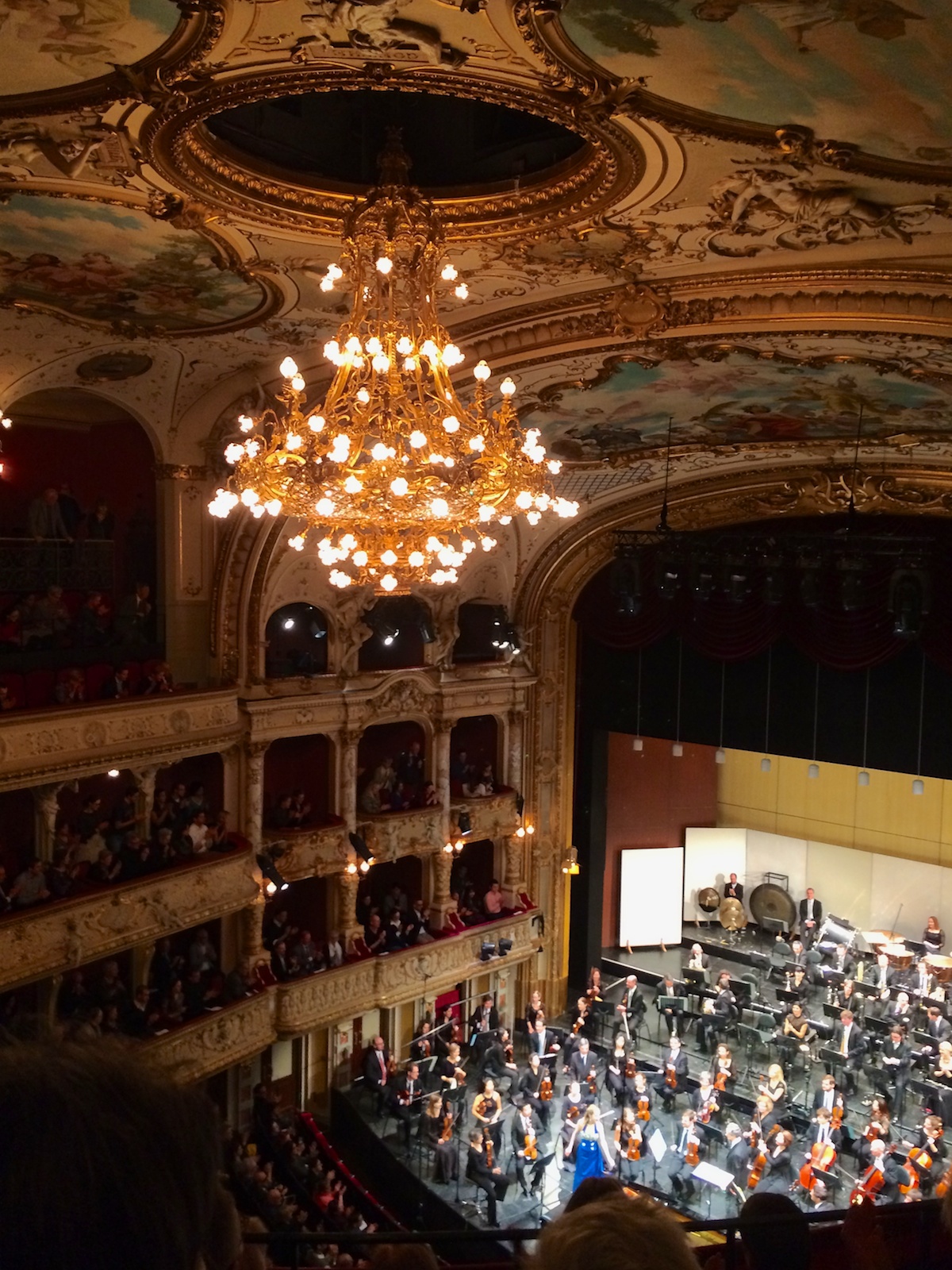On Applause
A Reflection
2012-02-22 — Original posting (on Blogger)
2014-11-01 — Re-posting as is (WordPress)
2016-06-24 — Brushed up for better readability
Table of contents
Discussions about Applause
A Facebook friend just pointed me to an ongoing discussion about applause in concerts. It was interesting reading — sort of (see below). However, because in general, I hate the level of these discussions, so I thought I’d just write my opinion in my little corner, a.k.a. my blog…
The tenor of these discussions (in this case mostly focusing on concert life in Toronto, I think) gives the impression that a concert experience nowadays is something totally perverted. There was a claim that concert life forces people to sit still and quiet until the artist or the organizer, or other parts of the audience allow them to start applauding. In earlier times people allegedly would just let out their emotions whenever they felt like doing so. In other words: people were clapping whistling, shouting, etc. whenever they wanted.
I think that to some degree this discussion lacked differentiation.
Some Basic Thoughts
OK, I agree that concerts should not be “celebrated” like a church ceremony — at least, not by principle. Just a couple of thoughts about this:
- There are indeed occasions, such as family & youth concerts where sticking to strict applauding rules would be totally off the track and is clearly not desirable: kids should be allowed to applause when they feel like — though at the same time of course they should learn that applauding in the middle of a long movement is not a good idea.
- At the same time, organizers and artists should select a program that is appropriate for such public, hereby avoiding “applauding clashes”.
- In general, it all really depends on the situation. In classical times, or in Handel’s concerts, people may have been freely applauding, maybe chatting, eating & drinking etc. This by no means implies that these are better, let alone automatically desirable circumstances for an enjoyable concert experience: the good old times weren’t, really (I think).
- At the center for such considerations should be the music, i.e., the composer. Or — as we are mostly talking about music by dead composers — the artist as the composer’s placeholder. Or the artist as the mediator between the composition and the recipient (the audience). One may have fun applauding in the middle of a phrase. But if that disrupts the artist, it may put an end to the concert, and thereafter, there is no listening pleasure, and nothing to applaud for in first place.
Common Sense in Applauding
I’m not asking for strict rules, but in general, people go to a concert to hear a specific artist play specific music. All I’m asking for is a bit of common sense on both sides:
- The artist should be able to control the applause to a fair degree. If after the first movement of a piano sonata a pianist throws up the arms, throws back the head, maybe the entire body etc., that almost implies asking for applause. In the other extreme, if the artist leaves the hands on the keyboard (maybe even minimizing the break) etc., then unwanted applause is less likely. I remember one occasion where Yulianna Avdeeva did not shy away from connecting two pieces (by Liszt) without a break. That of course requires that the two pieces fit together, i.e., the connection should make sense. Of course, this will inevitably cause whispered discussions such as “where are we now?” — “we’re here.” — “but I thought we’re there.” — “No, we’re here.” — “But then, did they not play this?” — “Shshshsht! I’ll explain that in the break!”…
- In some special situations (e.g., a piece that ends very slowly, very quiet, etc.), I think it is perfectly OK for the artist to ask (not command!) the public beforehand not to applaud before the piece is really over.
- The artist is responding to the public not just by “enjoying applause and recognition”, but in much more complex and subtle ways. I’m thinking of Yulianna Avdeeva who claims that in concerts she does not consciously notice the public, but she is playing almost “in trance”. Here, the link to the public is very sublime and delicate. Applause at the wrong moment can — I’m sure — be extremely disruptive. It may cause an artist to fall out of that “trance” (a rude awakening!), if not even “out of a piece”, losing track (up to a memory lapse), etc.
Sensibilities
- I think people in the public should develop / have some sensibility with regard to what the artist needs in order to deliver an optimum performance. Just employ some empathy towards the artist, even if that is old-fashioned these days!
- Also, very often after a piece, as a listener I’m still lost / immersed in the music. I may rather feel like silently crying, still feeling that deep effect that some music has on me. I would like a moment to recover, or, between movements, start focusing on the next movement (and I’m sure the artist has that need, too). How is that possible with people clapping, shouting, whistling, etc.?? My thought here (greetings from Immanuel Kant!): when I’m not clapping, I’m not disturbing the clappers. But if I do clap, I may disturb those in need of some silence after a piece or a movement. To me, that is just common sense & empathy, and it prevents me from trying to be the first in applauding.
- Trying to demonstrate that you know when a composition is over by being the first to applaud is rather rude and very selfish, in my mind! I remember an interview that Claudio Abbado once gave on TV. He stated that for him, the greatest moment in a performance occurs at the end of a piece: when there is this suspense and commotion in the concert hall that prevents people from applauding — for minutes, at times! There was also a concert in the Stiftskirche Ossiach (I watched it on TV — I wasn’t there), where Wilhelm Backhaus had to alter the last part of the program. He finished the concert with two very quiet pieces by Robert Schumann (“Warum?” was one of them). After the music, a long moment of very emotional silence followed. Both the artist and the audience realized that these were the last notes that these hands ever played. Backhaus died a few days after that performance. Clapping? Beware!
Other Means of Appreciation
Sure, the artist deserves recognition and reward — but there are means other than clapping, whistling, shouting, etc., e.g.:
- not clapping, perhaps (!),
- standing up in silence,
- coming to the concert in first place,
- dress appropriately, especially if you expect the artist(s) to dress nicely (no, I do not imply suit and tie!),
- giving the artist(s) the feedback that they are looking / hoping for. This may indeed be not to applaud, or at least not to applaud at certain points in a performance.
- coming again at the next performance with the(se) artist(s), possibly bringing along friends,
- listening to and taking home the message that music can give us (and to humanity, in general) …
- not going to a concert if you are not in shape, maybe likely to disrupt the performance by coughing, etc.
Now, when I return to those initial online discussions, these feel even more trivial, simplistic & selfish…


